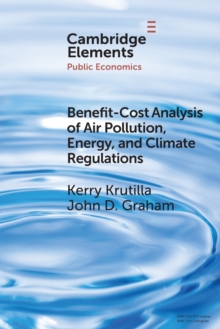
Political Competition and the Study of Public Economics Paperback / softback
by Stanley L. Winer, J. Stephen (Carleton University, Ottawa) Ferris
Part of the Elements in Public Economics series
Paperback / softback
Description
Why is an understanding of political competition essential for the study of public economics and public policy generally?
How can political competition be described and understood, and how does it differ from its strictly economic counterpart?
What are the implications of the fact that policy proposals in a democracy must always pass a political test?
What are the strengths and weaknesses of electoral competition as a mechanism for the allocation of economic resources?
Why are tax structures in democratic polities so complicated, and what implications follow from this for normative views about good policy choice?
How can the intensity of political competition be measured, why and how does it vary in mature democracies, and what are the consequences?
This Element considers how answers to these questions can be approached, while also illustrating some of the interesting theoretical and empirical work that has been done on them.
Information
-
Only a few left - usually despatched within 24 hours
- Format:Paperback / softback
- Pages:75 pages, Worked examples or Exercises
- Publisher:Cambridge University Press
- Publication Date:06/10/2022
- Category:
- ISBN:9781009001694
Other Formats
- EPUB from £14.45
- PDF from £14.45
£17.00
£16.65
Information
-
Only a few left - usually despatched within 24 hours
- Format:Paperback / softback
- Pages:75 pages, Worked examples or Exercises
- Publisher:Cambridge University Press
- Publication Date:06/10/2022
- Category:
- ISBN:9781009001694










